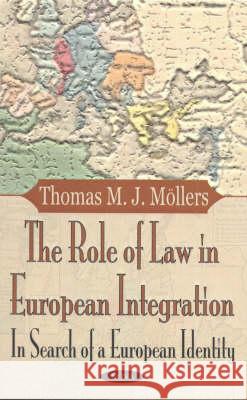Role of Law in European Integration: In Search of A European Identity » książka
Role of Law in European Integration: In Search of A European Identity
ISBN-13: 9781590336588 / Angielski / Twarda / 2003 / 127 str.
It is said that at the start of the 21st century a certain indifference and lethargy characterise many European states. This is supposedly attributable partly to the peace and affluence secured within the EC, but otherwise to doubts regarding the ways towards and objectives of further European integration. The emphasis on national identity on the one hand and hopes for a 'united states of Europe' on the other is an insurmountable paradox which produces its own dynamic. It seems almost impossible to reconcile these opposing concepts in a way which will find acceptance among the majority of the people. The concern of this book is to re-establish the European idea and to show that the EU member states can build upon common elements to create a European identity so as to work together and complete the tasks which confront them all. This book indicates the initial components of a European concept of legislation and judicial interpretation, required if European integration is to develop into a force for positive change. European legislation and judicial interpretation is essential for the legitimacy and persuasiveness of law. Only such a law will be truly accepted by the citizens of Europe and can be the motor of a strengthened sense of shared community, the basis for a European identity.











